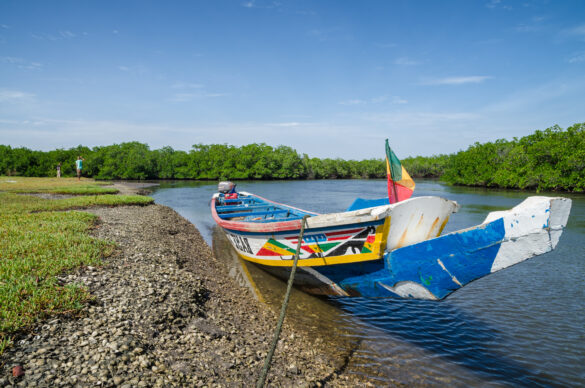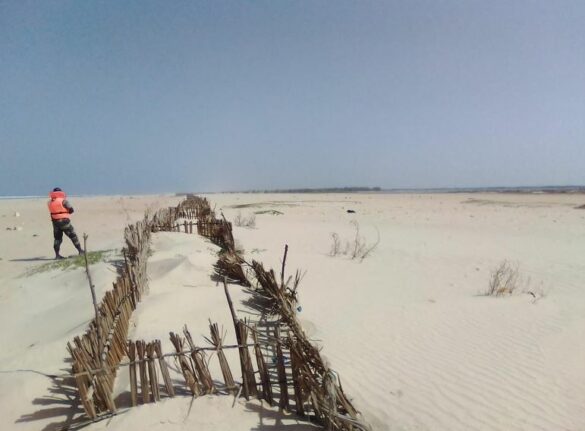Faced with increasing coastal erosion and the impacts of climate change, the Departmental Council of Saint-Louis, in Senegal, is positioning itself as a pioneer through an innovative mangrove restoration project. Combining environmental governance, social inclusion, and climate adaptation, this initiative shows the potential of nature-based solutions to protect ecosystems while supporting sustainable local development.
The Departmental Council of Saint-Louis, Senegal, has launched an ambitious mangrove restoration project, recognising the vital role mangroves play in coastal protection, biodiversity conservation, and livelihoods – especially for women. The project aims to restore both urban and natural ecosystems within the jurisdiction of the subnational authority.
This initiative stands out as a best practice in environmental governance and climate resilience due to its integrated, multi-stakeholder approach. At the heart of the project is the planned and sustainable management of mangroves, envisioned both as a climate adaptation solution and a nature-based solution. This model ensures long-term ecological health while supporting urban development in harmony with the environment.
Strengthening territorial cooperation around shared ecosystem
What sets this project apart is its strong focus on inter-municipal collaboration, promoting cooperation among local authorities in managing shared ecosystems. Through awareness campaigns, capacity-building workshops, and multi-stakeholder dialogues, the initiative has fostered a collective understanding of ecosystem preservation and the urgency of sustainable development. As a result, local governments are now working towards a sustainable resource management framework that encompasses environmental protection, urban planning, and socio-economic development.
The project also places strong emphasis on community participation, with active involvement from local populations in conservation efforts. Educational campaigns and participatory reforestation activities have highlighted the importance of mangroves as natural barriers against coastal erosion and carbon sinks in the fight against climate change. To support livelihoods and reduce reliance on environmentally harmful practices, the initiative includes economic empowerment programs such as ecotourism, aquaculture, and the promotion of renewable energy – particularly solar energy.
National and International Recognition
This multidimensional strategy has earned significant recognition with the project being awarded the Local Leadership Excellence Award, highlighting its innovation and effectiveness, and the Guangzhou Urban Innovation Award, that recognizes innovation in improving social, economic, and environmental sustainability and good urban governance in regions.
At both national and international levels, the initiative, particularly in terms of governance, has inspired other mangrove ecosystem management platforms in the Saloum Delta and Casamance river deltas, that are home to vital mangrove ecosystems. The Departmental Council of Saint-Louis initiative of mangrove restoration, has also contributed to the establishment of a national mangrove management platform led by the Directorate of Marine Protected Areas and is being studied for replication in other West African countries, including The Gambia and Guinea-Bissau. This reflects its potential as a regional model for climate adaptation and ecosystem restoration.
More information:

This story, shared for the UN Ocean Conference 2025, is presented within the framework of the COOP’R project, led by the Association Internationale de Régions Francophones (AIRF) with support from Regions 4, the Federation of Regional Natural Parks, and Nitidae. The project aims to promote interregional cooperation for the economic and social development of Francophone territories through biodiversity management.


